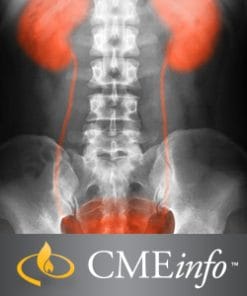Mayo Clinic Medical Breast Clinical Care Topics 2022 (CME VIDEOS)
90 $
Delivery time: Maximum to 1 hours
Format : 30 Videos + 37 PDFs
Mayo Clinic Medical Breast Clinical Care Topics 2022 (CME VIDEOS)
The Medical Breast Training Program will provide clinicians tools and knowledge to evaluate and manage common breast complaints, to perform personalized risk assessment and risk management and to care for breast cancer survivors. The goal is to educate practitioners in the field about guidelines for screening and diagnosis, risk reduction, genetics, and survivorship.
The Clinical Care Series curriculum focuses on core clinical topics in the workup and management of common breast issues, including screening, diagnostic evaluation, risk assessment and management of high-risk patients. The course incorporates both pre-recorded lectures and interactive case discussion sessions.
Target Audience
This program is designed for the specialty groups of for Medical Oncologists, Women’s Health, Family Medicine, and Primary Care. Content is designed for physicians, NP, PA , RN and Allied Health professionals.
Learning Objectives
Attendance at any Mayo Clinic course does not indicate or guarantee competence or proficiency in the skills, knowledge or performance of any care or procedure(s) which may be discussed or taught in this course.
- Review the clinical importance of average and high-risk screening, recognizing the challenges resulting in disparities.
- Develop a consistent and comprehensive approach to identification of those at hereditary cancer with knowledge of NCCN guidelines, American Society of Breast Surgeons’ guidelines and those of USPSTF.
- Discuss the work up of common breast complaints including breast/axillary mass, breast pain, nipple discharge and scaling.
- Discuss the work up of common breast complaints on changes in shape of breast and local deformities including mastery of the clinical breast exam.
- Develop an approach to breast cancer risk mitigation strategies including lifestyle modifications, risk-reducing pharmacotherapy, or preventative surgery.
- Demonstrate expertise in the identification and management of common benign breast lesions and more rare lesions such as phyllodes tumors and radial scars.
- Discuss the management of patients with biopsy-proven high-risk breast lesions.
- Review the management of patients with a strong family history of breast cancer or identified gene mutations that significantly increase risk of breast cancer.
Program : Click here
File Size : 12.12 GB









